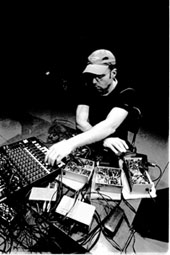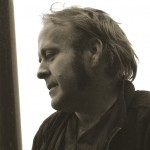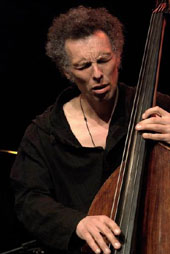02.11.2009, 21.00h, 6,00 Euro.
open ears : open world
Gert-Jan Prins (NL, Mego)
&
Michael Northam (USA, sound obects/field recordings)
&
Nq + Achim Tang (Electronica-Artist Nils Quak vs. Improv-Bassist Achim Tang)
Kulturbunker Mülheim
Berliner Str. 20 – 51063 Köln
Open ears : open world findet statt im Rahmen von ON – Neue Musik Köln.
ON – Neue Musik Köln wird gefördert durch das Netzwerk Neue Musik, ein Förderprojekt der Kulturstiftung des Bundes, sowie durch die Stadt Köln und die RheinEnergieStiftung Kultur.
Weitere Informationen/Infoline & Bildmaterial bei:
Kulturbunker Mülheim e.V.
Torsten Nagel
Berliner Str. 20 – 51063 Köln
Tel.: 0221-616926 – Fax.: 0221-6160796
E-Mail: torsten.nagel@kulturbunker-muelheim.de
Künstlerinformationen
Gert-Jan Prins

GERT-JAN PRINS has been known for twenty years as one of the most challenging sound artists in the Netherlands.He is an autodidact who focuses on the sonic and musical qualities of electronic ’noise‘. In his work, Prins makes connections with modern electronic club culture, occupying a radical position with his investigation of electronic sound and its relationship to the visual. He also creates links with the performance art and machine art of the 1980s, which reshaped the legacy of industrial society to produce threatening, yet sometimes also sublime, encounters with technology.
Photo: Gert-Jan Prins
http://www.gjp.info
Michael Northam

born murray, utah – 1970
Since his earliest memories of family journeys through desert state of Utah, Michael Northam has been intimately and directly inspired by vast geographies, severe weather and and other impressive natural events and places. This life long fascination of the phenomena of perception and experience faced with intimidating scales (large or small) continues to the foundation of his work with sound and images.
His work is the continuation of more than 15 years active art-life-travel which has brought him to visit, work with, and learn from over 90 artists from over 50 locations in 25 countries. Through these various experiences he has woven a complex tapestry of influences into a very personal intuitive process of creation. He continues to rediscover relations between visual/physical and sonic structures via a continual activity in graphic design, photography and filmmaking parallel to the sound work. As well as finding and practicing links between ’sound as art/experience‘ and traditional ‚musical‘ approaches, such as the study of Kirana style raga singing with Michael Stirling (the last student of Pandit Pran Nath) and most recently an intensive residency studying the Dhrupad vocal tradition with the Gundecha Brothers in Bhopal, India.
He has established studios, organized events, made his own way independent of institutions and nationality now for over ten years through relocations between several countries. By now his work has been presented in over 15 countries with CDs published on four continents. He is ever surprised to discover new listeners and collectors of his music in the most disparate places—from Japan to Lapland from Moscow to Montana.
Currently using specially prepared instruments such as the Magnetic Table Harp (a controllable magnetic resonance machine that acts simultaneously as a stringed instrument, a large contact microphone and a tone processor) as well as computer processing, prepared recordings (such as potatoes frying, wind moving through trees and walks through foliage) and a range of sounding objects–Michael explores the no-man’s land between improvisation and acousmatic composition. A delicate position poised in search of the ever elusive morphological ‚flow‘ where sound and action melt together and the eidetic triggering of sound as pure material transcends playing into the territory of ’sonic compost’—that which feeds our insatiable need to listen deeper.
After a productive summer in Berlin working with a variety of folks, Michael has moved to Brattleboro, Vermont where he will stay until the end of the year doing the sound design for a feature length film REDBELLY with the independent director John DiGeorge. This is a new foray into film sound and should be the first of more to come. During this time in Vermont he has also restarted his ephemeral project OROGENETICS with many reports, recordings and pictures from his past travels. Plans for 2009 including future projects with KODAMA with Hitoshi Kojo and a new project HOKURO with Sachiyo Honda. The CD ‚The Otolith‘ a collaboration with Loren Chasse has just been released on Helen Scarsdale and the first KODAMA lp should be forthcoming on Olde English Spelling Bee. We are still waiting for Xing Wu to produced the CD collaboration with Seijiro Murayama ‚Moriendo Reniscor‘ – and a new solo 10″ ‚Suhina‘ should be appearing before the end of Winter on Drone Records.
Photo: Michael Northam
http://oro.preg.org/
NQ (Nils Quak)
nils quak aka nq has been around for a while creating his subtle definitions of laptop music. his warm electronica tracks are made from rhythmic structures lifting and descenting, minimal clicks/cuts aesthetics, subtle breaks, waves of dusty fieldrecordings and melodic eruptions. the crafted young man has released records with progressive form and i can’t break you break records and various netprojects. he’s also a member of the stfu-festival crew.
www.nhlsqaik.com
Achim Tang

Jahrgang 1958, Wiener Musiker, Bassist, Klangforscher.
In Berlin geboren, hat in Graz studiert, lebt und arbeitet in Köln.
Jazz? Welt-Musik? Improvisation? Improvisation!
Grenzüberschreitende Kontakte in alle Tonarten, interplanetare Reisen im akustischen Raum;
und im Zentrum: Musik.
Kontrabass seit 1984.
Achim Tang studiert zunächst klassische Musik in Basel und Berlin, 1987 geht er nach Österreich zum Studium an der Jazzabteilung der Hochschule für Musik und darstellende Kunst in Graz.
1992 Konzertdiplom mit Auszeichnung.
1993 bis 2004 freischaffender Musiker in Wien, ab 2004 in Köln.
Angeregt durch die Begegnung mit Glen Moore beginnt Tang Ende der 1980er Jahre mit verschiedenen Stimmungen am Kontrabass zu experimentieren und entwickelt infolge eine asymmetrische, Quinten und Quarten mischende Stimmung die seine Spielweise entscheidend prägt.
Achim Tang zieht 1993 nach Wien und wird im Anschluss schnell zu einem der gefragtesten Bassisten der österreichischen Szene. Dabei lässt er sich keiner stilistischen Richtung zuordnen, sondern arbeitet gleichermaßen erfolgreich mit Jazzmusikern, zeitgenössischen Komponisten, DJs, Weltmusikern und Tänzern zusammen.
Foto: Rainer Rygalik
www.achimtang.com